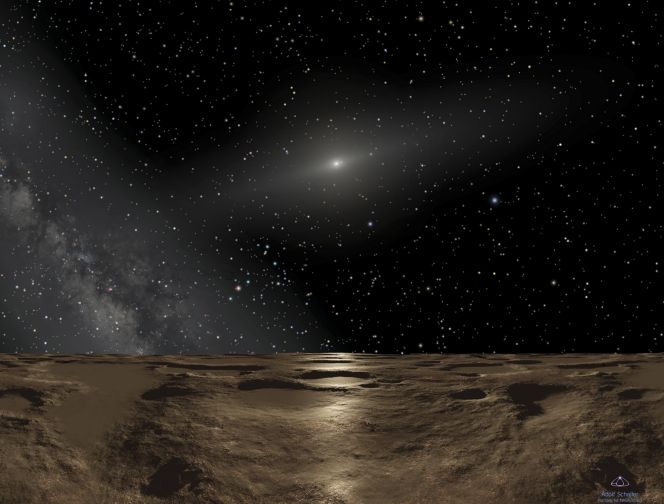Sedna at Noon

Credit & Copyright: Adolf Schaller,
ESA,
NASA
Explanation:
Standing on Sedna - the solar system's most
distant
known
planetoid - your view of the Sun at high noon might look
something like this.
An artist's dramatic vision, the picture shows the
Sun suspended above the nearby horizon as a bright star
immersed in
the dusty ecliptic plane.
Within the
dust-scattered sunlight are more familiar
members of the solar system, including planet Earth.
But at a distance of about 13 billion kilometers
(8 billion miles) Earth would only be visible in
binoculars or a small telescope.
In
Sedna's dark, daytime skies,
the noonday Sun is also joined by
the faint stars and obscuring dust clouds of the Milky Way,
suspended on the left above stark, ruddy terrain.
For
Sedna-based sky gazers, all planets have interior
orbits and would remain close to the Sun in Sedna's skies.
Of course, for earthbound astronomers, interior planets
Venus and Mercury
also remain near the Sun, with
Venus scheduled
for a rare crossing of the solar disc
on June 8.
Authors & editors:
Robert Nemiroff
(MTU) &
Jerry Bonnell
(USRA)
NASA Web Site Statements, Warnings,
and Disclaimers
NASA Official: Jay Norris.
Specific
rights apply.
A service of:
LHEA at
NASA /
GSFC
& Michigan Tech. U.

